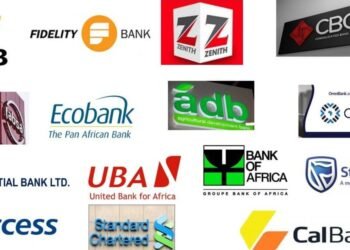The Vice President of the LPG Marketers Association Mr. Gabriel Kumi has discussed the declining Liquefied Petroluem Gas (LPG) consumption in Ghana and outlined key challenges facing the industry.
Kumi highlighted the financial burden high LPG prices place on average Ghanaians, leading many to turn to cheaper alternatives like charcoal.
He emphasized the urgent need for government intervention to make LPG more affordable and accessible.
Kumi acknowledged a worrying trend in LPG consumption in Ghana, pointing out that “we hit our peak in terms of consumption in 2021,” but since then, consumption has seen a significant decline.
He noted that between 2021 and 2022, LPG usage dropped by 12%, only to experience a slight increase in 2022.
However, he cautioned that “the figures we are picking for 2023 will not match the 2021 levels,” confirming a persistent decrease in LPG consumption.
Kumi attributed this decline primarily to the high cost of LPG, which has become unaffordable for many Ghanaians.
According to him, the price of a 14.5 kg LPG cylinder, commonly used by households, has risen to approximately GHS 260, making it “unbearable for the ordinary Ghanaian,” especially considering that the average monthly income is between GHS 1,200 and GHS 1,800.
“We are asking somebody who takes home GHS 1,000 a month to use about 25% of that income to purchase just LPG.”
Mr. Gabriel Kumi Vice President of the LPG Marketers Association
Comparison with Other Countries: Subsidies and Price Control
“Côte d’Ivoire is currently doing about 700,000 metric tons a year, whereas we’re doing an average of about 33,000 metric tons.”
Mr. Gabriel Kumi Vice President of the LPG Marketers Association
The disparity, according to Kumi, stems from the Ivorian government’s approach, as they “have consistently taken measures to ensure that the price of LPG is relatively low,” subsidizing it by 20-25%. Conversely, Ghana has placed taxes on LPG, further escalating the prices.
Call for Tax Removal and Government Action
“We have been very consistent since 2018 when we saw that prices of the [product has increased at that time we called] on the government to remove all taxes from LPG.”
Mr. Gabriel Kumi Vice President of the LPG Marketers Association
According to him, these additional costs make LPG “a luxury product” rather than a basic necessity that should be affordable for all. Kumi recommended removing taxes and levies to “make the product much more affordable.”
Despite ongoing dialogues with government officials, Kumi expressed frustration over the lack of progress.
“We have written alot of papers, [even] to the Ministry of Finance, but we realize it only ends at the engagement stage.”
Mr. Gabriel Kumi Vice President of the LPG Marketers Association
Although the National Petroleum Authority (NPA) has reportedly made presentations to the Ministry of Energy advocating for the removal of these taxes, Kumi noted that no concrete action has been taken.
The Economic Impact of High LPG Prices

The high price of LPG not only impacts household budgets but also affects the business operations of LPG marketers.
“If measures are not taken to really bring the price of LPG down so that we can atleast attain some level of consumption, it’s likely that we are going to lay off a lot of workers going forward.”
Mr. Gabriel Kumi Vice President of the LPG Marketers Association
Furthermore, he highlighted that many LPG distribution plants in rural areas are facing closures. He noted; “We used to have about seven or eight LPG stations in Wa. Now, two of them have closed down.”
Concerns Over the Cylinder Recirculation Model
Kumi also questioned the viability of the cylinder recirculation model currently being promoted by the government.
He argued that implementing this model, which requires private LPG marketers to provide cylinders to customers, imposes additional financial burdens on LPG companies. He emphasized; “The taxpayer should not be paying for the investment of a private entity.”
“If the plants in [these rural areas] are folding up, then what is the guarantee that when you fill cylinders and send them to these rural areas, they will be bought?”
Mr. Gabriel Kumi Vice President of the LPG Marketers Association
A Call for Collective Action
“We expect every Ghanaian to join us in this fight and appeal to the government to do the needful if it really believe in the target it has set for the LPG sector.”
Mr. Gabriel Kumi Vice President of the LPG Marketers Association
Kumi reiterated that the government’s goal to increase LPG consumption is undermined by the high prices resulting from tax burdens, which contradicts the mission to make LPG accessible to all Ghanaians.
In summary, Kumi’s interview highlighted the multiple factors—high prices, lack of government subsidies, and ineffective policy implementations—that are driving the decline in LPG consumption in Ghana.
By removing taxes and making LPG more affordable, Kumi believes the government can reverse this trend, thereby ensuring that more Ghanaians have access to clean energy.
However, he remains cautious, pointing out that “you can’t set such a laudable target and do things to affect your own target.”
READ ALSO; Tiwa Savage Shares How She Juggles Motherhood, Music Career



















